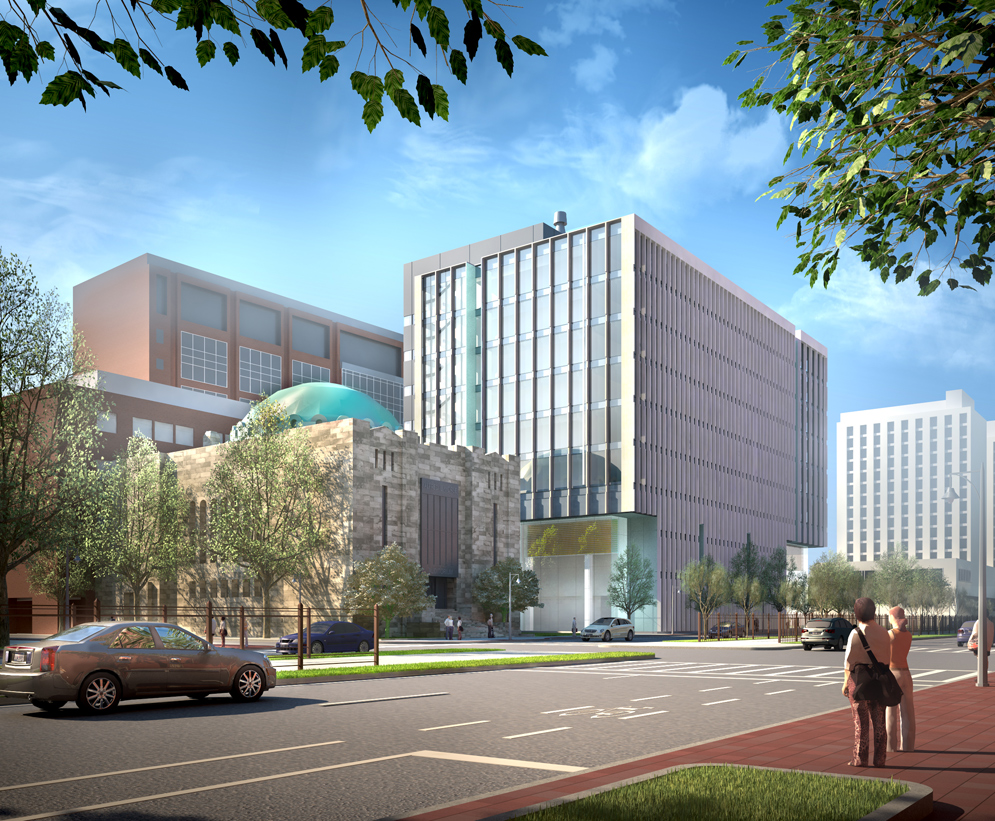Science Gets a Front Door on Comm Ave
Center for Integrated Life Sciences & Engineering will bridge disciplines across sciences
This story was originally published on the BU Research website.
For decades, some of the most exciting research at Boston University has been unfolding in a row of buildings hidden on Cummington Mall, designed originally for making carriages instead of studying the life sciences.
Now University President Robert A. Brown is giving science a more prominent address on the University’s main thoroughfare. In late May or early summer 2015, at what is now a parking lot at 610 Commonwealth Avenue, BU will break ground for its new Center for Integrated Life Sciences & Engineering (CILSE), a $140 million, state-of-the-art, nine-story research facility that will bring together life scientists, engineers, and physicians from the Medical and Charles River Campuses. The building will be dedicated to systems neuroscience, cognitive neuroimaging, and biological design. With shared, flexible lab spaces, meeting rooms, and other common areas, it is being designed to encourage the kind of collaborative, interdisciplinary research that will be the hallmark of 21st-century science.
“Today, many of the outstanding challenges in science lie at the boundaries between traditional disciplines or the unchartered spaces between them,” says Brown. These unchartered spaces will be explored at CILSE, a place he says will foster “major interdisciplinary research efforts led by faculty from many departments and schools, but with common interests.”
CILSE will be built adjacent to historic Morse Auditorium and is expected to be finished in late 2016 or early 2017. It will contain lab space for approximately 160 researchers, postdoctoral students, and staff, 270 graduate students, and additional space for future faculty. The architects are from Payette, a Boston firm that has built prizewinning science buildings for major research universities and other institutions around the world.
The 170,000-square-foot building will house the Center for Systems Neuroscience, the Biological Design Center, the Center for Sensory Communication and Neuroengineering Technology, and the Cognitive Neuroimaging Center, with a 3 Tesla fMRI—a fundamental tool for studying the brain’s trillions of neural connections and how they relate to human behavior. The imaging technology will serve faculty from schools and departments across BU’s sprawling neuroscience community—and from other universities around Boston—who study brain topics from how we learn, think, and remember to traumatic brain injury and Alzheimer’s disease.
